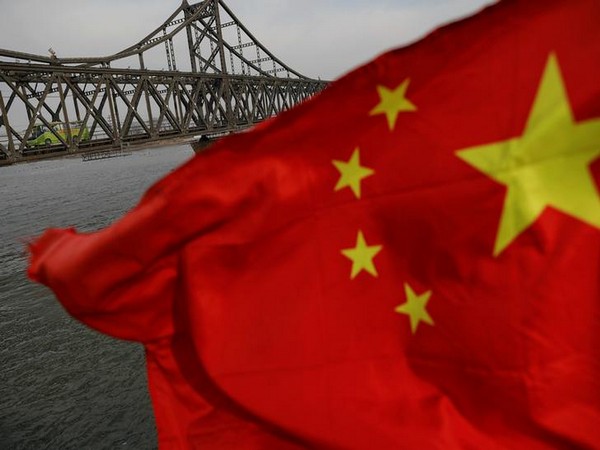By Namini Wijedasa
The Highways Ministry’s senior officials are pushing the Road Development Authority (RDA) to finalise the award of the proposed US$ 550mn (Rs 110bn) New Kelani Bridge (NKB) — the elevated highway — to Athurugiriya to China Harbour Engineering Corporation (CHEC) despite an official freeze on costly mega projects.
These officials—who are now holding closed-door discussions with the company—are plugging the project as “a means to attract dollars into the country” amidst Sri Lanka’s worst-ever debt crisis, multiple RDA sources confirmed.
But the terms of the financing agreement, these sources insisted, are “deeply unfavourable” to the RDA. As Sri Lanka cannot immediately borrow from China Exim Bank or other sources owing to the debt default, it is envisaged that CHEC will secure a loan for the project which will be repaid by the RDA.
The full arrangement—described by RDA sources as an “unusual type of BOT” [build, operate and transfer] deal—will require the Authority to pay significantly more for the 17km four-lane expressway which will run the entire distance on pillars. The mandatory environmental impact assessment is also not complete.
Efforts to try and award the final contract contravene at least one court order to suspend the process pending the final determination of a judicial challenge against the Rajagiriya to Athurugiriya section on environmental grounds. More than 3km of this stretch will cross the Averihena Tank and surrounding paddy fields which are part of the Thalangama wetland.
In 2007, the wetland and its surrounding areas were gazetted as an Environmental Protection Area (EPA) under the National Environmental Act (NEA) owing to its “ecological, hydrological and historical importance”.
But in July last year, the Highways Ministry prevailed upon Environment Minister Mahinda Amaraweera to amend the gazette to add building, operation and maintenance of the four-lane elevated highway from NKB to Athuruguriya (and all construction related to the project) as “permitted uses” under the law.
The project, including this amendment, is challenged in two courts of law. The Supreme Court is hearing a writ petition from the Centre for Environmental Justice and two Thalangama residents. The case will be taken up again on September 23 this year.
In February this year, the Appeal Court issued an interim order preventing the construction of the expressway until it concludes hearing a petition filed by another resident. It was observed that the EIA pertaining to the project had not been obtained. The case will be taken up on December 5.
Notwithstanding this, the Highways Ministry is planning to introduce to the Cabinet a memorandum seeking approval to start procurement for the elevated highway. The BOT blatantly departs from the norm, RDA sources reiterated.
BOTs are generally adopted when a Government has no finances, when long-term concessionary funding from agencies such as the ADB, JICA and China Exim Bank is unavailable or when the Government has exceeded borrowing limits.
In a normal BOT project, the developer builds and implements the project, usually recouping his investment within 25-30 years. The project is then handed over to the Government.
If the developer’s revenue falls below target during the prescribed period, the deficit between revenue and expenditure is met as gap funding at the start of the project; or the Government pays the difference as an annual disbursement.
“In both cases, Government spending is minimal,” authoritative RDA sources said. “But the Highways Ministry’s proposed agreement for this highway is totally different. It is a distorted BOT scheme that is unfavourable to the Government.”
“Under the envisaged contract, the developer will not be the revenue or toll collector for highway use, it will be the Government, they explained. The onus for raising project funds is on the developer. There is no Government guarantee. The financial cost will, therefore, be heavy,” a source said.
CHEC will be expected to complete the project in three years. The Government will then start making annuity payments (regular disbursements every year for a finite period) for the commercial or concessionary loan obtained by the company.
These payments will be in the form of annual instalments against the company’s borrowings and will necessarily include other terms in the contract agreement.
“The quantum of the annuity payment is three times higher in comparison with a normal loan instalment for the same project,” the source warned. “This is because, as CHEC will not receive a sovereign guarantee, it must consent to other conditions set by lenders to cover the additional risks.”
An EPC (engineering, procurement and construction) contract would be cheaper, provided a local or foreign loan could be obtained for an amount not exceeding 20 percent of the RDA engineer’s estimate for the highway, the source said. But such borrowings cannot be raised until negotiations on debt restructuring end.
Highways Ministry Secretary R.W.R. Pemasiri did not respond to written questions, including on why the agreement was being pushed through amidst a dire economic crisis, what the terms and who the lenders were.
The letter of intent to grant the elevated highway project to CHEC has already been issued. But the Cabinet is required to approve the next step in the process.

